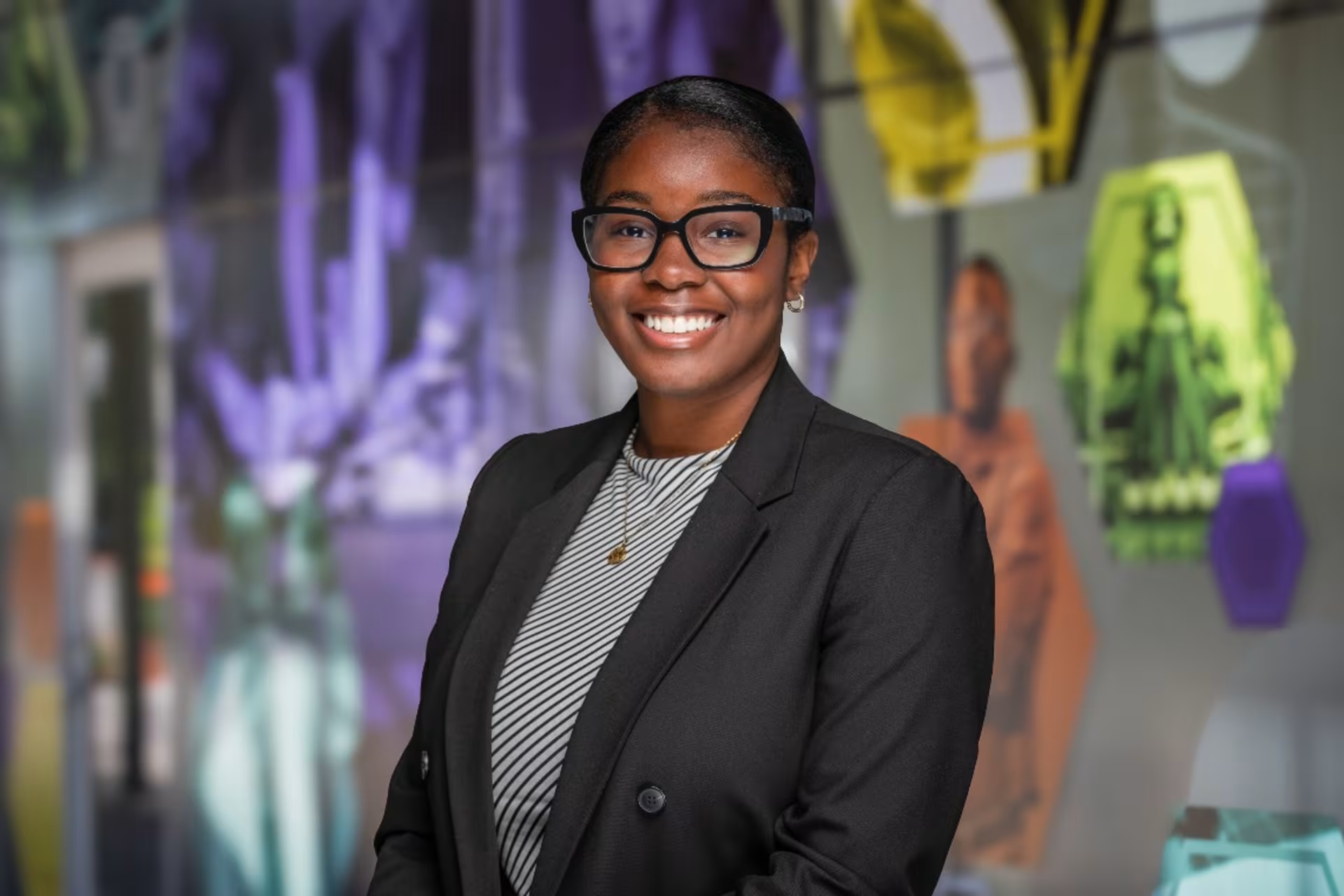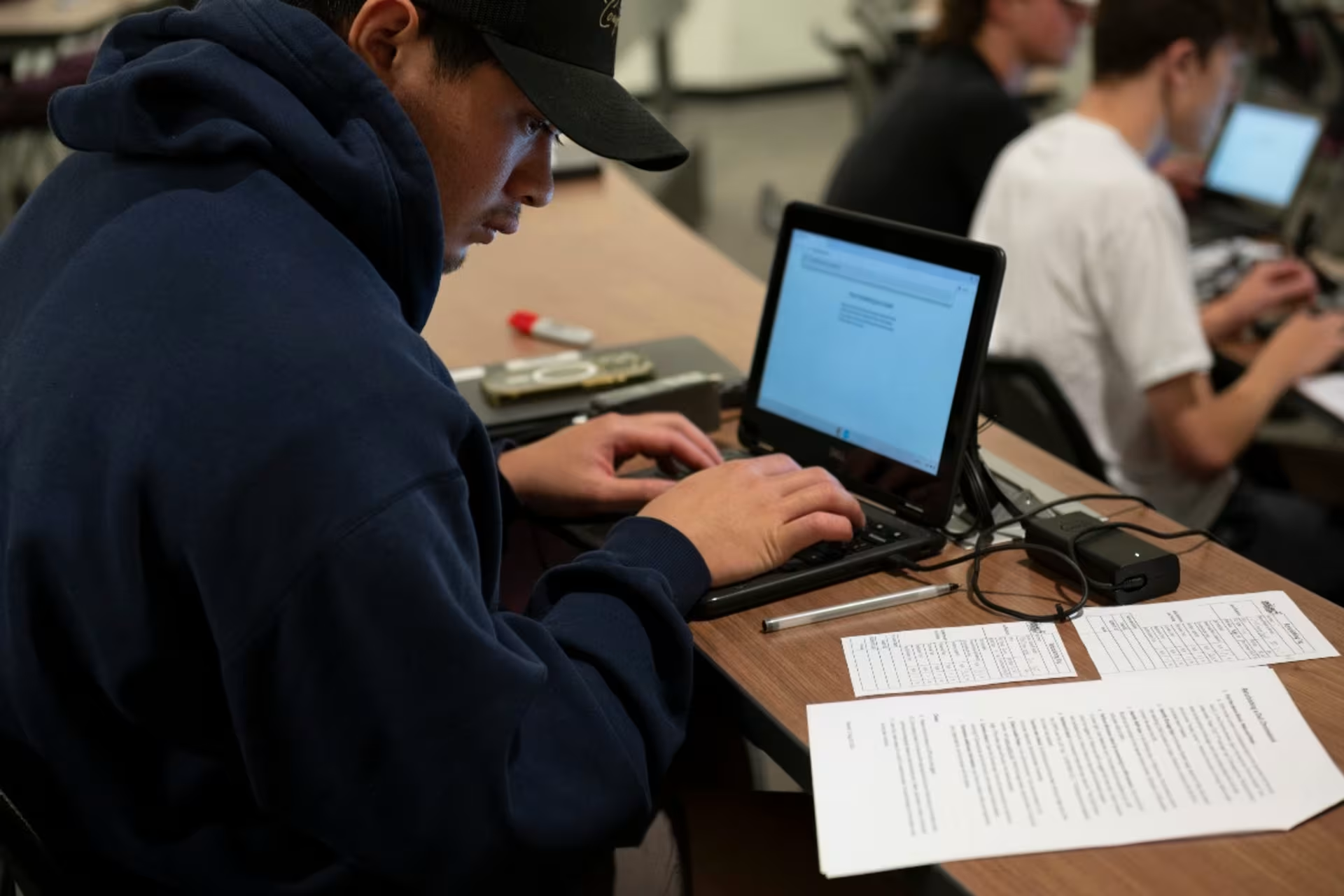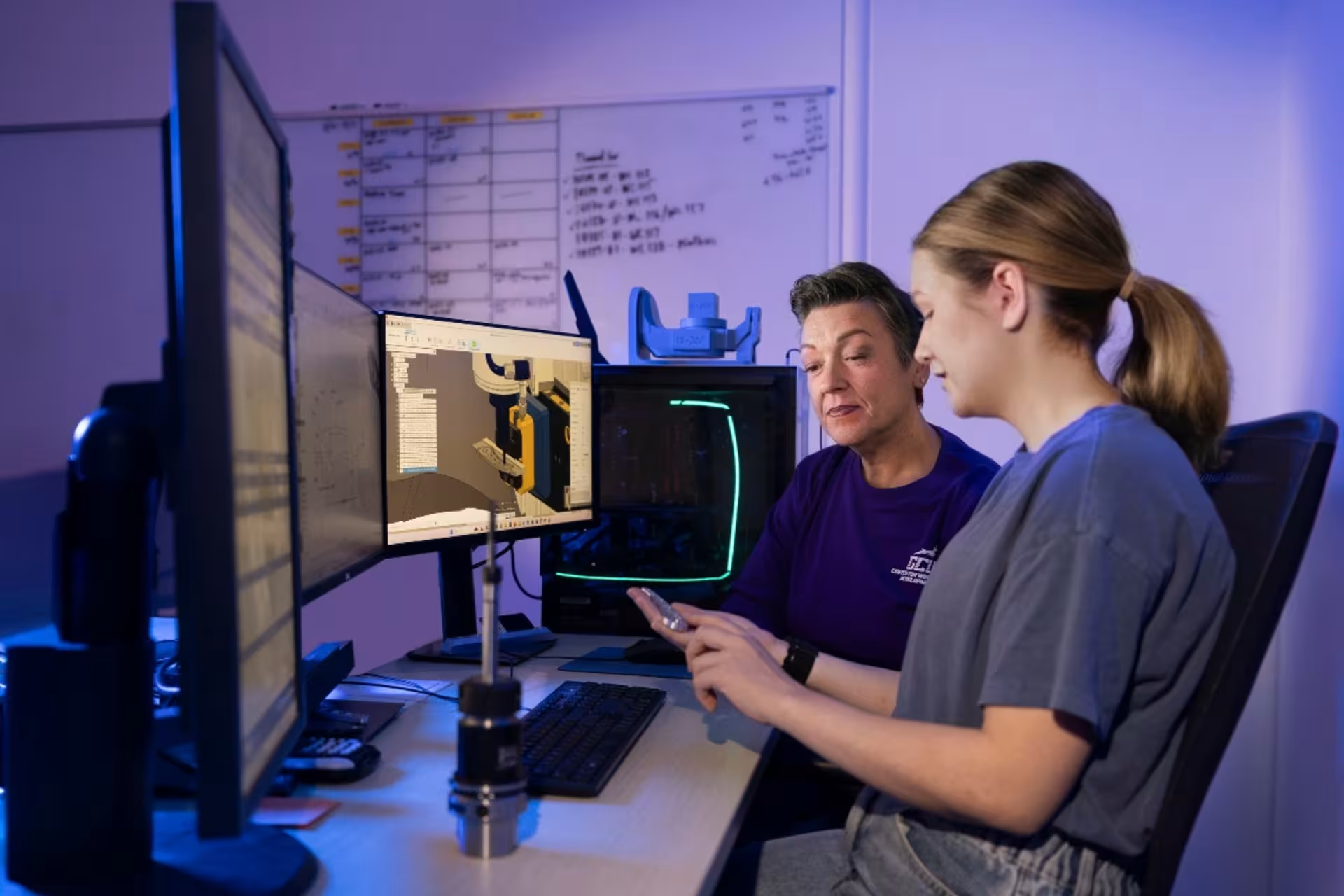
Bachelor of Science in Computer Engineering Degree
Gain Foundational Concepts With a Bachelor’s Degree in Computer Engineering
The Bachelor of Science in Computer Engineering degree from Grand Canyon University can teach you the foundational skills and competencies to potentially pursue a technology career. Computer engineering is a broad field at the intersection of computer science and electrical or electronic engineering. Computer engineers specialize in the design of computer hardware.(See disclaimer )If you’re fascinated by technology and interested in pursuing a STEM career, a BS in Computer Engineering may be right for you.

Campus: $8,250 per semester [More Info]
Up to 90 credits, only 84 can be lower division
Credits: Fill out the Lopes Eval to find out what will transfer
Admission Requirements (Bachelor's)
- 16+ years old
- High School Graduate
- 3.0+ Unweighted GPA
OR 2.5+ Unweighted GPA and
- ACT: 19
- SAT: 1000*
Admission requirements may differ based on degree level, program and modality, or transfer status. Some programs of study may require a higher GPA and/or other qualifying criteria for admission. Please review full admission and program requirements in the University Policy Handbook.
*Math and reading only on a 1600 point scale (test date after 3/1/2016). SAT score of 1380 required for 2400 point scale (test date before 3/1/2016).
Earn Your BS in Computer Engineering at GCU
If you enjoy mathematics, sciences and computers, a bachelor’s in computer engineering may be ideal for students who seek career versatility in an evolving field. With the help of our knowledgeable faculty, you have the opportunity to study hands-on skills for your future career. Our collaborative environment supports active learning in lab and lecture courses with access to our designated computer labs.
This degree teaches the principles and best practices of computer hardware design and engineering standards. Students in this program work as part of a team, collaborating and inspiring teammates toward innovation and excellence in computer engineering, electronics, project engineering and beyond.

Transform Your Future: Take Computer Engineering Courses
Computer engineering is a specific field of engineering that combines electrical engineering and computer science. The duties of a computer engineer may vary based on the specialization and skills of the individual.
However, a computer engineer may also carry out tasks such as:(See disclaimer 1)
Computer engineers typically consider networks, security and hardware and software development as part of their ongoing tasks, with an emphasis on computer hardware. As a computer engineering student at GCU, you will take courses pertaining to hardware design and development. Through lectures and hands-on experimental learning on related content areas, you will practice applying compliance and engineering standards, including engineering design methodology, engineering fabrication tools and computer engineering designs.
Explore Hardware and Software for Supporting Computer Systems

Throughout this degree program, you will be taught concepts in computer science as it relates to hardware engineering. This includes recent hardware and software developments in computer engineering.
As a computer engineering student, you can explore concepts around designing and configuring computer hardware systems and related applications within some of the following:
Personal computers
Automobile controls
Cell phones
Wearable technologies
Exploring Essential Computer Engineering Skills
Aspiring computer engineers should have a variety of skills, including both technical and soft skills.(See disclaimer 2)
This bachelor’s degree in computer engineering can teach and assess competency in relevant skills, such as:
Career Paths for Graduates With a BS in Computer Engineering
A bachelor’s in computer engineering can teach a firm foundation in information technology and computer engineering competencies. In these, and other career possibilities, you may have the opportunity to translate the concepts taught in this degree program to practical applications and work toward advancing in the ever-changing technology field.
These skills can provide you with the opportunity to pursue careers such as:
Architectural and engineering manager
Software developer
Computer hardware engineer
Computer network architect
Estimated number of new jobs for computer hardware engineers from 2022 to 2032(See disclaimer 3 )
STEM Degrees From an Institutionally Accredited University
Earning your STEM degree from an accredited university is crucial for ensuring the quality and recognition of your education. GCU is institutionally accredited by the Higher Learning Commission — emphasizing the quality of instruction is delivered by dedicated faculty members who are knowledgeable in their fields.
Bachelor’s Degree in Computer Engineering FAQs
Before deciding on a bachelor’s in computer engineering degree, you may have some questions. Here are some answers to frequently asked questions about the computer engineering field and degree program at GCU.
Does computer engineering require coding?
Are computer engineering jobs in need?
Should I major in computer science or computer engineering?
What qualifications do you need to be a computer engineer?
What subjects are taught in computer engineering courses?
Program Curriculum
General Education Requirements
Required General Education Courses
Core Courses

This STEM degree may support your passion for engineering, innovation and computer hardware design. Request information today and prepare for a potential career as a computer engineer.
- Indeed (2023, Aug. 2). Computer Science vs. Computer Engineering: Key Differences. Retrieved on Sept. 19, 2023.
- U.S. Bureau of Labor Statistics (2023, Sept. 6). How to Become a Computer Hardware Engineer. Occupational Outlook Handbook. Retrieved on Sept.19, 2023.
- COVID-19 has adversely affected the global economy and data from 2020 may be atypical compared to prior years. The pandemic may impact the predicted future workforce outcomes indicated by the Bureau of Labor Statistics as well. Accordingly, data shown is based on 2022, which can be found here: U.S. Bureau of Labor Statistics, Occupational Outlook Handbook, Computer Hardware Engineers retrieved on Sept. 9, 2023.
- Indeed (2023, March 10). 10 Important Skills for Computer Engineers (With Tips). Retrieved on Sept. 19, 2023.


